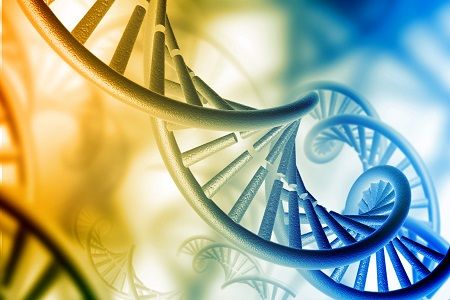Genes Can Predict Tardive Dyskinesia Occurrence
Research with more diverse patient populations is needed to confirm this new discovery.

A specific genetic factor can play a role in predicting tardive dyskinesia (TD) occurrence, according to new findings.
A multinational team of researchers conducted a meta-analysis of 2 data sets in order to determine the relationship between a specific gene and tardive dyskinesia occurrence. They also added their own new data to the analysis.
The first data set included 217 patients from the U.S. and Canada who had been diagnosed with schizophrenia. The second set of patients included 20 schizophrenia patients with and 41 schizophrenia patients without TD at baseline.
A prior study demonstrated that the HSPG2 gene, or Perlecan gene, was significantly associated with tardive dyskinesia in Japanese schizophrenic patients and a subsequent, independent study was able to confirm the findings. Another study examining a deficiency of the HSPG2 gene in European and Israeli patients with schizophrenia showed that, as in mice models, inadvertent chewing motions were reduced.
Perlecan gene mutations have appeared in patients with chondrodystrophic myotonia, or Schwartz-Jampel syndrome, as well as linked to the aging of skeletal muscles. Perlecan is also part of the mix that creates the blood-brain barrier, and it is possible that it can even play a neuroprotective role following ischemic stroke, the researchers wrote. The more understanding researchers have of the Perlecan gene, the better the understanding of the role the protein plays in TD, investigators noted.
The researchers obtained allele counts for tardive dyskinesia patients and controls for their investigation, including both of the data sets. The studies included patients of several backgrounds, including: Japanese, Jewish, European, and African American.
The study authors said their original data did not show any significant TD occurrence or severity as measured by the (AIMS) scores. In the other samples from the meta-analysis, the gene was not associated with transformed AIMS scores or tardive dyskinesia occurrence.
From a total of 324 TD patients and 515 TD-negative controls, investigators found that the G allele was significantly linked to tardive dyskinesia. There did not seem to be any significant heterogeneity among the studies including in their meta-analysis, they said.
After filtering the study results by age, the researchers learned that did seem to affect the findings. Filtering for sex also appeared to have a trend affect, they wrote.
All of this led the researchers to believe that tardive dyskinesia risk “reflects multiple genetic factors,” they wrote. Using longer-term studies that include looking at the fluctuations in tardive dyskinesia could one day further support this idea.
“International efforts are need to provide additional independent replications in large samples, especially for genetic associations with small effect sizes,” investigators concluded. “Moreover, the minor allele frequencies differed across ethnicities, and findings may also be more relevant for East Asian samples in which the original findings were found.”
Replication studies on patients across varying ethnicities could provide insight, they noted, into whether genetic association is notably strong in East Asians.
The study, “Investigation of the HSPG2 Gene in Tardive Dyskinesia - New Data and Meta-Analysis,” was published in the journal Frontiers in Pharmacology.